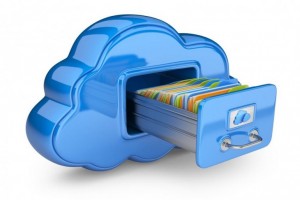Why?
Accounting records are necessary to control a business, monitor cash flow and to record income and expenditure.
It is also a requirement of HMRC and Company Law for companies to keep adequate books and records. The definition of adequate will depend upon the nature of the business, for example, a start – up will often need to simply track money in & out which can be done with a straight forward cash book.
Larger or more complicated businesses will also need to track stock, debtors and creditors, the money owed to and by your business. Some accounting systems will also integrate wages, VAT and potentially filing tax returns into their bookkeeping systems.
What to go for?
The advice is to keep it simple and relevant to the needs of the business. Determine what is required and for what cost.
The choice is between a manual cash book, spreadsheets, and accounting software or to outsource the record keeping to an external account.
Manual books
Writing up income and expenditure in cash books. Normally useful for the simplest of businesses and for people not trained in computers.
Spreadsheets
Spreadsheets are available on most computers, people are familiar with these and they are flexible. The majority of bank accounts now allow a business to download transactions direct to a spreadsheet. The spreadsheet will require more work than accounting software with regards to analysis and the design of reports.
They are not suitable when the business starts to get more complicated and time consuming when you start to add invoices, creditors and debtors.
Accounting Software
There is a choice between free and purchased software and between cloud based and those programmes stored on local hard drives.
Free software comes with limited options, contains adverts and has other restrictions. Most free software will be cloud based. Cloud software can still struggle with speed issues compared to local programmes, however with the continued increases in broadband speeds this is becoming less of an issue.
Many businesses are concerned with storing their data at a remote location, although security issues for cloud accounting are taken very seriously by the relevant companies. Another issue is the ability to access data should the company software fail.
Examples of free web based software packages include:
- Brightbook at www.mybrightbook.com
- Money Dashboard at www.moneydashboard.com
- Kashflow at www.kashflow.com
- Quickfile at www.quickfile.co.uk
- Turbocash at www.turbocash.net
- TAS Basics at www.tassoftware.co.uk
- GNU C ash at www.gnucash.org
There is also a VT Cashbook at www.vtsoftware.co.uk/cashbook which can be downloaded to a local hard drive.
All of the above have different strengths and weaknesses but tend to be broadly similar in their approach. They can link to most bank accounts and you can download transactions, you then allocate or tag the transaction and the system will remember the allocation for the same payments and income going forward which saves processing time.
These products need a reasonable internet connection but an advantage is that they can be accessed anywhere. Some even have Smart Phone apps for their products.
Purchased software has the advantages of being more flexible, contains no adverts and you will not be continually pushed to sign up for the upgraded model. Beware; a lot of purchased accounting software will have integrated functions that might not be relevant. For instance we have encountered clients who have purchased Sage line 50 for £500 when Sage instant accounts at £100 would have sufficed.
Purchased software come in either cloud based such as:
- QuickBooks Simple or Pro
- Sage Instant accounts or Line 50
- Money Soft – money manager personal or business
There are also a number of cloud based software packages:
- Xero Accounting Starter or Standard
- Quickbooks Online
- Sage One Online
- Kashflow
- Freeagent
- Kashoo
All of the above have strengths and weaknesses:
- Sage and Quickbooks are well established and most accountants would be familiar with them, meaning there is easier access to help.
- Xero is very well received in the UK market and was specifically set up as a cloud based system whilst the others migrated from local systems.
- Kashoo is considered to be very good at handling different foreign currency issues.
- It is therefore important to know what you require from an accounting system before purchasing.
Book Keeper / Accountant
The outsourcing of record keeping is not normally relevant for business start – ups. However as the business grows with a large element of detailed transactions a good accountant can be worth their weight in gold.
It is important before you commit that you first work out what you need. Keep it simple and relevant, considering how good some of the free software has been they may be a useful starting point.
August 2014



